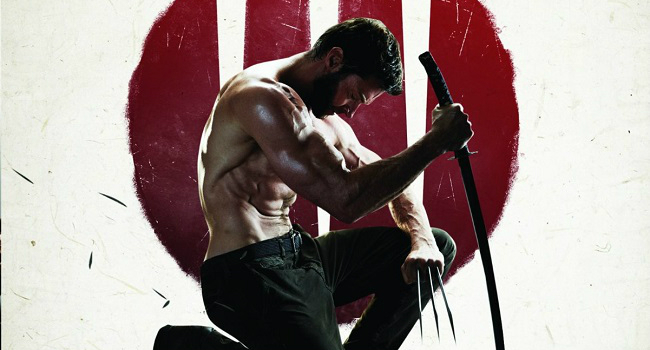
The Wolverine Blu-ray Review
 Hugh Jackman get back into the role of Logan for this sixth time (with another to come next year, and then a proposed eighth being announced). This time we are not only away from X-Men territory and out of the past, but right in the aftermath of X-Men: The Last Stand.
Hugh Jackman get back into the role of Logan for this sixth time (with another to come next year, and then a proposed eighth being announced). This time we are not only away from X-Men territory and out of the past, but right in the aftermath of X-Men: The Last Stand.
Logan is disillusioned once more. This time not by a forgetful memory, or the wayward path he took as a much younger man – Instead it is by his grief – pertaining mainly to the loss the woman he truly loved above all others, Jean Grey (seen here is dream sequences).
We find out early on that Logan had a connection to a Japanese soldier back in WWII. A young man, Yashida, whose life he saved, who now in his own twilight is seeking Logan out to repay the favour. Logan is sent for, tracked down and brought to Japan to face his old friend in his dying frame and a proposition is made.
And this is where as they say, the plot thickens. There are family members here who are not so keen on Logan’s presence; not least the middle aged son, Shingen played by the always reliable Hiroyuki Sanada (Sunshine, The Last Samurai and the upcoming The Railway Man). But also through into the mix a bit of political intrigue, the occasional shadowy figure with mutant powers, a granddaughter who has been marked for death and you have Wolverine thrust on the run with little time to figure out what is going on around him in this foreign land.
The Wolverine on a re-watch has more value than perhaps some cinema audiences gave the film credit for. Sure this is not an X-Men film where teams of mutants do magical battle back and forth causing no end of destruction to landmarks and cityscapes. Instead this is a much more personal adventure with Logan the primary mutant that we focus on. Of course they have chucking in a couple of flavours to pep up the supporting cast. Some are more successful than others here. Yukio (Rila Fukushima) makes for a fun foil for Wolverine to play off and work with as an alley. Whereas the villain Viper (Svetlana Khodchenkova) is bland, two dimensional and more fitted to a Batman and Robin type comic book movie (as evidenced at the climax by her horrid Poison ivy-esque costume).
The film becomes part road movie once the action has kicked off as Logan seeks to protect and hide the granddaughter of the man he came to see. The chemistry between Logan and Mariko (Tao Okamoto) adds illumination and depth to both characters and is a plausible relationship – even with Logan being tormented by his past relationship with Jean Grey.
Thankfully they effects work has taken a step up from the previous Wolverine film which has some rather embarrassing “claw” work. Here it is much more seamless, as well as of course a more apparent use of the real thing as well.
The Wolverine strives hard and long enough to make the film its own entity and for the large part succeeds most of the way. The film starts on a suitably morose and downbeat town as we re-enter Logan’s life before he heads off to Japan that executes Logan’s place in life perfectly for what is to come. There is so much flab in the middle of the film as there is just a lot of drama to get through before the film had run headlong towards the climax. But it is perhaps this last act where the film falters with its misconceived and poorly dramatised villains, a stop-start aspect that slows the climax down, and the over reliance on daft CGI fights falling down gantries. It isn’t a woeful experience, just one that didn’t need to be dialled in that direction.
Fans though will be impressed with the storytelling over all and will be pleased to see Jackman nailing the part once again and managing to keep the character fresh and interesting.
The film itself did good business in the US, but with the rest of the world chased in it is thusfar the second biggest film in the X-Men universe to date proving there is still a strong interest.
Picture and sound quality are of a high modern standard. The Blu-ray 2D edition comes with a good hour long making off, a trailer and a couple of extra bits. The 3D edition comes with more extras including the director’s commentary.
Steven Hurst
